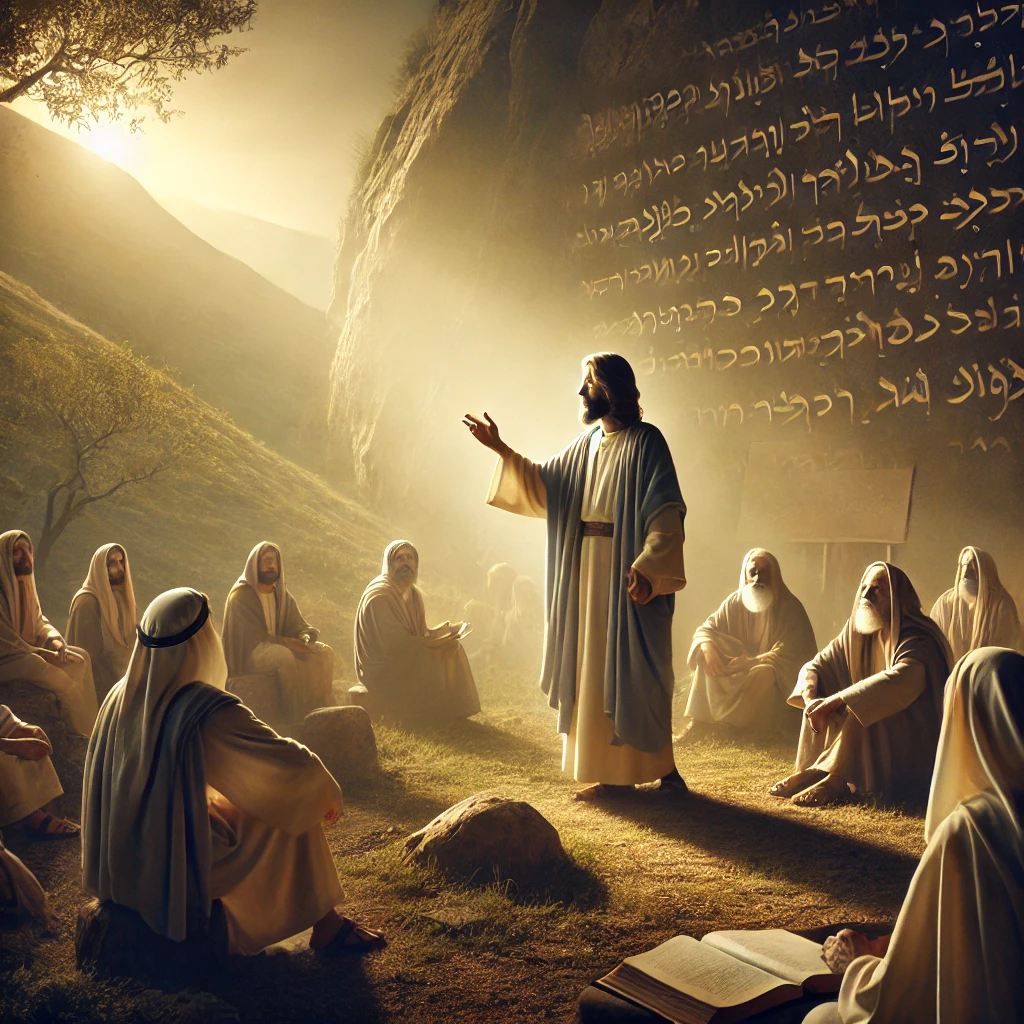More Than a Name

When I refer to Yeshua ben Joseph instead of “Jesus,” some people assume I’m simply trying to be trendy or “New Agey.” Others wonder why the name matters at all. After all, isn’t it the same person?
This question is both simple and profound because Yeshua and Jesus are not just different names—they represent different perspectives, even different beings.
Yeshua was his Aramaic name, the language he spoke and heard throughout his life. It means “salvation” or “to deliver,” and it connects us to the man who walked the Earth as a realized Master. In Hebrew, his name was sometimes written as Yehoshua, a longer form meaning “Yahweh is salvation.” This connects him to the lineage of Hebrew wisdom, including figures like Joshua in the Old Testament.
Jesus, by contrast, is a name that evolved much later. It comes from the Greek Iēsous, adapted into Latin as Iesus and eventually becoming “Jesus” in English. While this name is now widely recognized, it reflects a more institutionalized portrayal of Yeshua—one shaped by centuries of religious tradition.
By calling him Yeshua, I honor the human Master who lived and taught the Kingdom within, beyond the layers of dogma that later transformed his life and message. This isn’t about rejecting Jesus but about reconnecting with the essence of Yeshua’s humanity and timeless wisdom.
Using the name Yeshua invites us to look beyond those associations. It helps us reconnect with the man who walked the Earth as a human being, not a symbolic figure confined to religious doctrine.
Jesus vs. Yeshua: A Deeper Look
The difference between Jesus and Yeshua goes beyond language. It’s a distinction between two beings with distinct roles and meanings.
The “Jesus” many of us grew up hearing about is the cornerstone of Christianity—a figure created through centuries of collective belief, institutional dogma, and mythology. This Jesus is often portrayed as a divine savior who died for humanity’s sins and exists as a supernatural entity, separate from us, to be worshipped.
Yeshua ben Joseph, however, was profoundly human. He lived, laughed, loved, experienced challenges, and ultimately revealed the Kingdom within—a state of harmony, self-mastery, and unity with his divine nature. His life wasn’t about supernatural sacrifice but about showing others the way to their own divine connection.
In Hebrew, he may also have been called Rabbi Yeshua or Rabboni Yeshua, reflecting his role as a teacher. These titles remind us of his humanity and his intimate relationship with those he guided.
By calling him Yeshua, I honor his humanity and the example he set as a human being who embodied divinity—not a distant savior but a living demonstration of what is possible for all of us.
Why the Name Matters
Language shapes how we see the world, and names carry powerful associations. For many, “Jesus” is inseparable from the institutional structures of Christianity. It evokes specific images and beliefs, often tied to suffering, sin, and salvation through the church.
Using the name Yeshua invites us to look beyond those associations. It helps us reconnect with the man who walked the Earth as a human being, not a symbolic figure confined to religious doctrine. It also clarifies the distinction between Yeshua, the realized Master, and Jesus, the supernatural construct of religious belief.
By weaving in his Aramaic and Hebrew roots, we begin to see him more fully—not as a distant figure of worship but as a man of his time who transcended cultural and spiritual limitations to embody divinity. This isn’t about being “New Age” or different for the sake of it. It’s about peeling back the layers of history to rediscover the timeless wisdom Yeshua shared—a wisdom that is universal, accessible, and deeply empowering.
Reconnecting with Yeshua’s Wisdom
The power of Yeshua’s teachings lies in their simplicity and universality.
Yeshua taught that the Kingdom of Heaven is within—a state of inner harmony, Mastery, and divine connection that each of us can access. He didn’t come to save humanity through suffering or sacrifice; he came to remind us of our own divinity.
By contrast, the figure of Jesus often emphasizes dependence on an external savior, perpetuating the idea that humanity is inherently flawed and in need of redemption. This distinction between the human Yeshua and the symbolic Jesus highlights why his original teachings remain so relevant today.
When we see Yeshua as the human Master who walked this Earth, his message becomes deeply relatable. He didn’t ask for worship or devotion—he invited us to awaken to our own truth and sovereignty.
It’s About Connection, Not Semantics
At the end of the day, whether you call him Yeshua, Jesus, or another name, what truly matters is the connection you feel to his wisdom.
For me, calling him Yeshua is a way of stripping away the layers of dogma to connect with the Master who lived, taught, and embodied divine love and sovereignty. It’s a reminder that his message wasn’t about suffering or salvation through another but about awakening to the divinity we already are.
Recognizing Yeshua as human and Jesus as a symbolic creation helps us honor both aspects—the personal journey of the man and the mythological figure that has shaped religious traditions. But for me, the human Yeshua resonates most deeply as a guide for inner mastery.
“Yeshua or Jesus—names are ultimately just symbols. But for me, calling him Yeshua helps clear away the layers of history and dogma, allowing his timeless message of sovereignty and inner mastery to shine through. It’s not about the name; it’s about rediscovering the truth of who we are.”
Invitation to Reflect
I invite you to reflect on your own understanding of Yeshua or Jesus. Beyond the names and narratives, what does his wisdom mean to you? How can his message of inner mastery and divine connection support your journey today?
When we look past the labels, we may find a timeless guide pointing us to the truth within ourselves.
